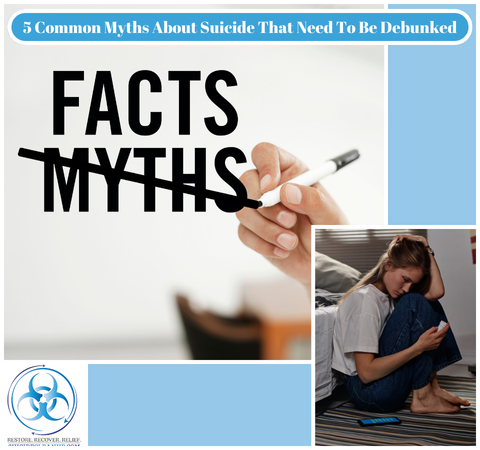
How the Golden Gate Bridge Became Known for Suicide Destination
March 21, 2022
Inside the Heaven’s Gate Mansion: Who Were the Victims?
May 31, 2022According to the National Center for Health Statistics, the period between 1999 and 2017 saw a 33% increase in deaths associated with suicide.
Has your loved one lately mentioned taking their own life? It is essential to take any warning signs seriously because people don’t use suicide as an idle threat to seek attention. But what are the warning signs, when should you take suicide threats seriously, and what can you do?
What is a Suicide Threat?
Suicidal threats can be communicated verbally, emotionally, or psychologically. Your loved one may show few if not all possible signs of suicidal ideation. Some of these may include:
1. Verbal Suicide Threats
Your loved one may talk about their suicidal thoughts or express their feelings through:
- Constantly bringing up suicide topics
- Talking about wanting to die
- Mentioning a particular suicide plan
- Expressing their feelings of being a burden to people around them
- Expressing thoughts of being entrapped
- Discussing constant suffering and depression
2. Behaviors Accompanied By Suicide Threats
Your loved one may accompany their suicide threats with some behaviors such as:
- Donating their belongings
- Changing their sleeping and eating patterns
- Change in their personality and not caring about their appearance
- Self-harming such as reckless driving or engaging in reckless behaviors
- Researching methods of attempting suicide
- Disregarding hobbies or activities they previously enjoyed
- Retreating from regular daily routines
- Alienation from others
- Creating a suicide note
- Contacting family and friends to bid them farewell or express their love or rage
3. Emotional Indicators
Suicide threats may be accompanied by mood changes such as:
- Pessimism, hopelessness, and lack of enthusiasm
- Anxiety, rage, and irritability
- Depression
- Feeling degraded or humiliated
- Mood swings accompanied by sadness
- Psychosis symptoms like a sense of disconnection from reality, hallucination, or belief in things that don’t exist
- A strange mood improvement such as calmness. This sudden adjustment could result in them deciding to die and feeling relieved.
You should also take a suicide threat seriously if your loved one faces some setbacks in life, such as grief, financial constraints, loss of employment, diagnosis of a terminal illness, divorce, or a relationship crisis.
How to Respond
The first thing you can do to help a loved one with suicidal thoughts is to listen and be emphatic without judging. Other steps you may take include:

Sometimes, all that is needed is familial support–e.g. lending an ear, providing comfort, or as pictured above, a hug.
- Assisting them in seeking mental health treatment. Also, accompany them to appointments if they allow you.
- Taking away any harmful items such as guns and other lethal weapons from them
- Avoid passing judgment or downplaying the seriousness of their situation.
- Pay attention to their feelings instead of your reactions to their issue.
- Keep in touch with the person regularly rather than waiting for them to contact you.
- Ensure the time they spend alone is very minimal.
- Reach out to other trusted persons who may be able to help. Ensure the persons you contact will not bring added stress or blame them for their actions.
- Work with them in creating a safety plan they could use when they have suicidal thoughts. An example may include calling someone they trust.
- Call 911 if the situation is dire.
- Anonymously contact the National Suicide Prevention Lifeline through toll number at 1-800-273-8255 or by dialing 988.
Suicidal thoughts may be overwhelming. However, the crisis can be temporary and treatable. Sometimes all your loved one wants is for you to show them you care and are ready to listen to them. Give them the time and assurance that all will be well. Additionally, give them your moral support and encourage them to seek help from a health professional.
How We Help
We, the crews at SuicideCleanup.com, are immediately available to all families or property owners in need of restoring their property or building after a tragic trauma. The aftermath is shocking, painful, and the family or untrained personnel should never attempt to clean it themselves. Call us. We offer a quick, discreet, and cost-effective solutions whether the tragedy happened in a home, business, or vehicle.
We hope you don’t need our services but if you do, know we’re always available to assist you, 24/7 with crews all over the nation. Even if you don’t need our assistance, we hope you consider sharing this article on social media to reach even more in need.


